
Arizona Mountain Kingsnake (Lampropeltis pyromelana pyromelana)
Sonoran Mountain Kingsnake (Lampropeltis pyromelana)
Snakes Around Las Vegas, Wildlife Around Las Vegas
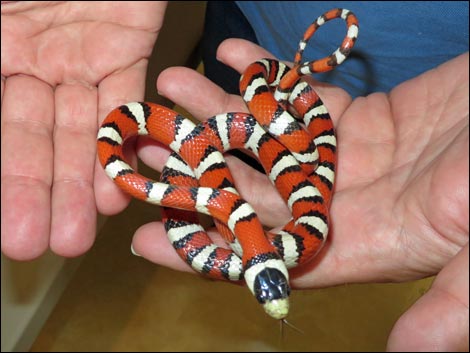 |
General Description: A medium sized snake with red, black, and white bands that encircle the body (red rings do not contact white rings). The snout is white. Taxonomy: Colubrid Snakes Family (Colubridae). Technical Description: Length medium (2 to 3.5 ft). Dorsal and ventral surfaces marked with red, black, and white bands that encircle the body. Black bands separate the red and white bands on the back but may disappear on the sides; white bands are uniformly narrow (especially on the belly), and more than half of the white bands extend across the belly. The red bands may be complete across the back or may be confined to the sides forming wedges of red within the black bands. The snout is white or flecked with white. Scales smooth. Anal scale single. |
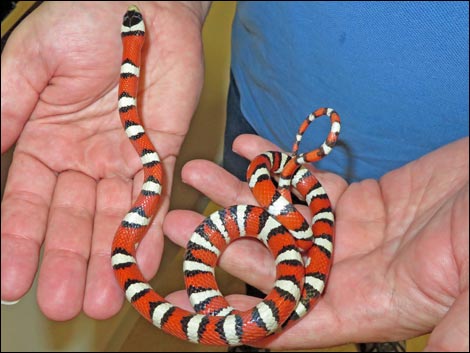 |
Diet: Feeds on lizards, snakes, and small mammals. Habitat: Mountains. Occurs in Pinyon-Juniper Woodland, Yellow Pine, and Pine-Fir Forest habitat types, often near streams or springs and in and around rotting logs or rocks. Range: The species basically occurs from central Arizona south into Mexico. Disjunct populations of the Utah Mountain Kingsnake occur in central and southwestern Utah and in eastern-central Nevada. In Nevada, it occurs in isolated mountain ranges, including the Virgin Mountains (north of Lake Mead along the Arizona border). Breeding: Lays 3-6 eggs in early summer. |
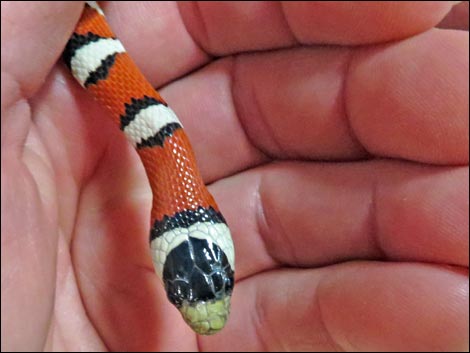 Note: white nose = non-venomous |
Similar Species: This species can be confused with the venomous Coral Snake (Micruroides euryxanthus) that lives in Arizona and Mexico. Coral Snakes, however, have red bands that are adjacent to the yellow bands ("red and yellow, kill a fellow"), and the snout is black. Other species of black-, red-, and white-banded snakes can be distinguished by incomplete banding or white bands that are wider on the sides and belly than on the back and black snouts. Comments: |
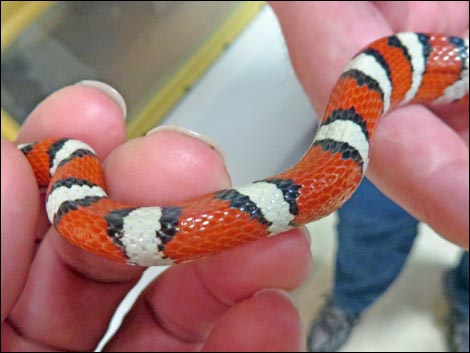 |
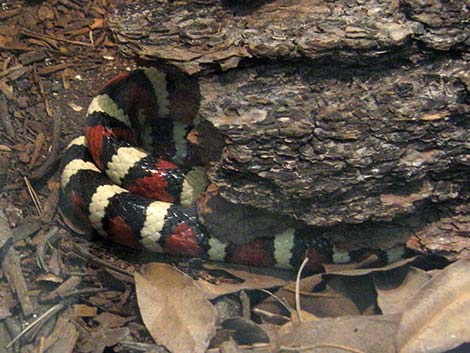 |
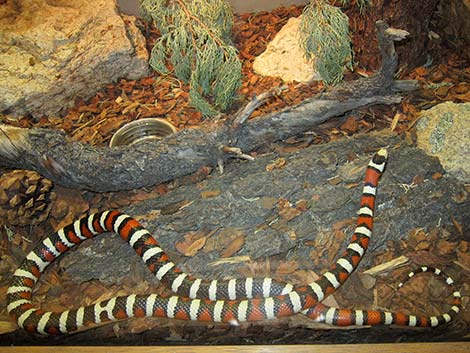 |
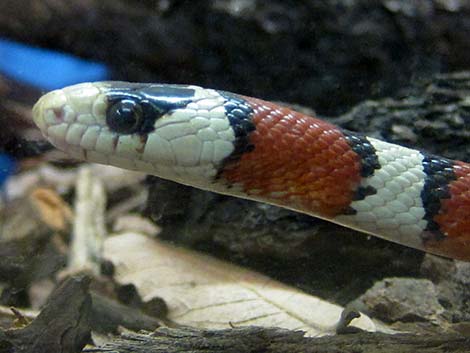 |
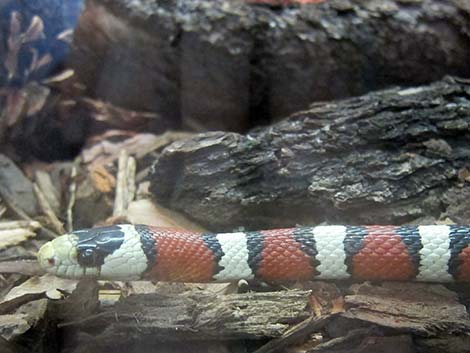 |
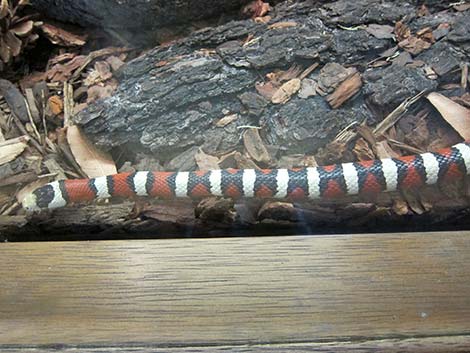 |
Note: All distances, elevations, and other facts are approximate.
![]() ; Last updated 221213
; Last updated 221213
| Snakes Around Las Vegas | Wildlife Around Las Vegas | Glossary | Copyright, Conditions, Disclaimer | Home |